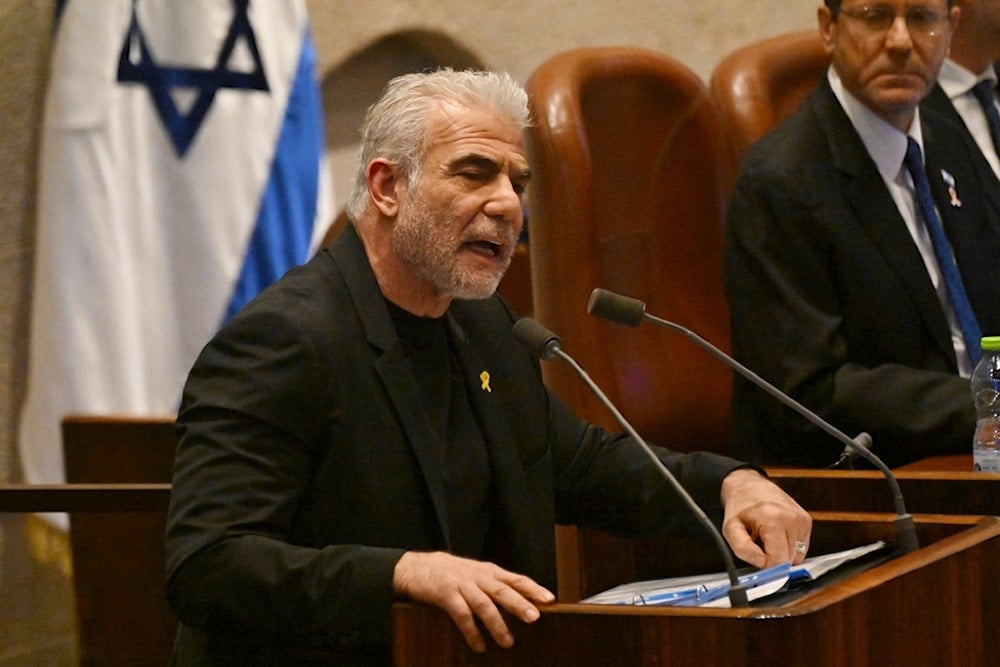Israeli opposition leader meets with UAE president, foreign minister
Israeli opposition leader Yair Lapid visits Abu Dhabi to discuss regional developments and pressure on Hamas with UAE officials.
-

Opposition leader Yair Lapid speaks at the Knesset, in occupied al-Quds, on Monday, Oct. 28, 2024. (Pool Photo via AP)
Israeli opposition leader Yair Lapid said he has concluded a brief visit to Abu Dhabi, where he met with UAE President Mohammed bin Zayed Al Nahyan and Foreign Minister Abdullah bin Zayed Al Nahyan.
He said the discussions focused on regional developments and the need to secure the return of Israeli captives held in Gaza.
During the visit, Lapid stated in an interview for SkyNews Arabia that "the entire Arab world should put pressure on Hamas to implement the deal."
US President Donald Trump announced on Tuesday that Israeli officials have agreed to the necessary conditions to finalize a proposed 60-day ceasefire in Gaza, during which a broader agreement to end the war will be negotiated.
Trump confirmed that Qatar and Egypt, key mediators in the ceasefire talks, will present the final deal to Hamas, urging the Palestinian Resistance group to accept it.
Lapid's diplomatic engagement gains significance given that Israeli Prime Minister Benjamin Netanyahu has yet to hold a public meeting with the UAE President since the signing of the Abraham Accords in 2020, which normalized ties between Abu Dhabi and Tel Aviv.
Trump hints at more states jumping on the bandwagon of normalization
Meanwhile, Trump, following a meeting with the Saudi defense minister at the White House, revealed that many additional countries will join what he dubs the "Abraham Accords", which signals a potential expansion of normalization efforts across the region.
Most recently, Trump's top Middle East envoy, Thomas Barrack, revealed that Damascus and Tel Aviv are engaged in high-level talks aimed at "restoring calm", with Washington actively supporting the discussions.
In an interview for The New York Times, Barrack, the US ambassador to Turkey and special envoy to Syria, expressed the American administration’s desire for Syria to join normalization agreements.
However, he cautioned that the process could take time, as Syria’s new president, Ahmad al-Sharaa, might face domestic resistance.

 2 Min Read
2 Min Read










